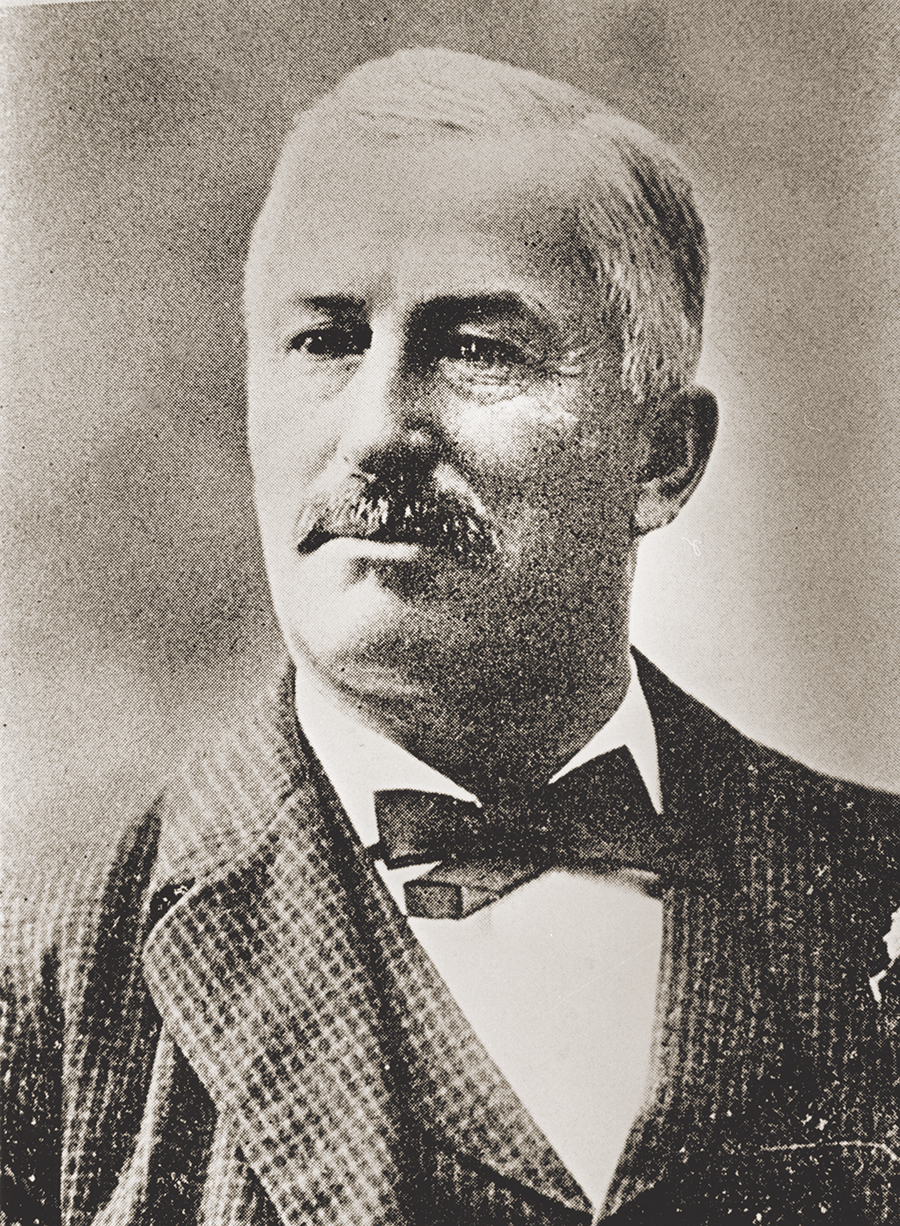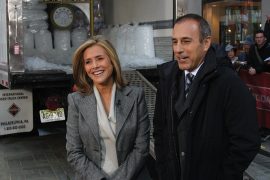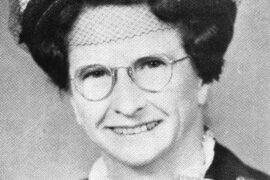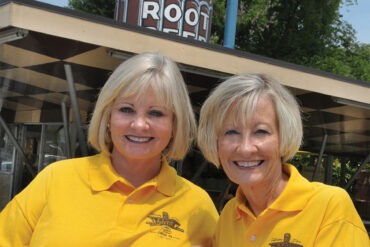By James E. Casto
HQ 55 | SPRING 2005
Industrialist, banker, civic leader, political figure, churchman – Ely Ensign (1841-1902) was all these and more. Little wonder that he was such a commanding figure in the city of Huntington’s first decades.
In those early years, the Ensign Manufacturing Co. was the second biggest employer in Huntington. The young city’s largest employer was, logically enough, the Chesapeake & Ohio Railway Co. After all, it was the C&O that gave birth to the city when rail tycoon Collis P. Huntington picked a vacant tract of Ohio River bottomland to be the railroad’s western terminus.
A Connecticut businessman, Ensign, then 30 years old, came to Huntington and established the Ensign Manufacturing Co. in 1871, the very year that the West Virginia Legislature officially chartered the new city. His financial partner in the venture was a fellow Connecticut native, William Henry Barnum.
Barnum – a distant cousin of famed showman P.T. Barnum – was already the president of a successful foundry business. When he and Ensign founded their new company, he was representing Connecticut in the U.S. House of Representatives. He later would go on to serve that state in the U.S. Senate and still later would be chairman of the Democratic National Commission.
Despite the company’s name, it was Barnum who was president of Ensign Manufacturing, while Ensign was secretary-treasurer and manager.
Since Collis P. Huntington also hailed from Connecticut, it seems likely that the three men knew each other and that it was Huntington who urged Ensign and Barnum to set up a new plant in his new town. In any event, it’s a recorded fact that both Huntington and his brother-in-law, Delos W. Emmons, served on the Ensign Manufacturing board of directors.
The new plant’s first products were railroad car wheels, but soon it began building wooden rail cars. Within a few years, it had become one of the largest car building facilities in the United States. By 1895, the Ensign plant was turning out more than 4,000 cars a year, including box cars, stock cars, gondolas, mine cars and snowplows. In 1899, Ensign was one of 13 independent car builders consolidated into the American Car & Foundry Co.
Today, the company is known as ACF Industries and is privately owned by billionaire financier Carl Icahn. Its sprawling Huntington plant on 3rd Avenue at 23rd Street was long a busy part of the city’s industrial scene but has been largely idle in recent years. But that’s getting far ahead of our story.
When ACF was organized, Ely Ensign – generally known as “Major Ensign” – remained as general manager of the Huntington plant, continuing in that position until his death. Ensign’s name appears frequently in the pages of George S. Wallace’s Cabell County Annals and Families, the standard reference book on early Huntington history. Wallace writes, for example, that at one point when an economic downturn had forced a temporary shutdown of the Ensign Manufacturing plant, “Mr. Ensign erected his handsome home on 3rd Avenue between 13th and 14th Streets in order to give his shop employees work.”
The house, at 1330 3r d Avenue, was demolished some years ago.
Ensign was a director and vice president of the Huntington National Bank, and a long-time friend of the bank’s president, John Hooe Russell. In the 1880s, Ensign, Russell and a half-dozen other men organized the Irving Club, a predecessor of the Guyandotte Club. In 1890, Ensign was a charter member of the Board of Trade, which evolved into today’s Huntington Regional Chamber of Commerce.
Long active in politics, Ensign served on the Huntington City Council and in that role was part of an unsuccessful 1892 effort to open a city hospital. It would be another decade before the city would get its first hospital.
In 1896, Ensign was elected mayor. He was succeeded in that office by his son-in-law, W.E. Hite, who married his daughter Anna. A decade later his son, John W. Ensign, was elected mayor.
Ensign was chairman of the Building Committee that raised the $7,500 required to erect Trinity Episcopal Church. He was a longtime vestryman at Trinity and was senior warden when he died.
On the evening of January 27, 1902, Ensign was at his 3rd Avenue home, playing chess with a friend, Robert Wiatt, when he put his hand to his forehead and complained of a pain over his eyes. He got up and went to a washstand, moistened a towel and held it to his forehead.
Then, as a page-one story in the next day’s issue of the Huntington Advertiser recounted: “The pain became more excruciating and Mr. Ensign barely had time to reach a chair nearby when he fell back into the same and in less than a minute was dead.”
Dr. C.B. Enslow, who lived only a few doors away, was summoned, but to no avail. “The cause of death is supposed to have been apoplexy,” the newspaper account said. Funeral services for Ensign were conducted at Trinity Church, and he was buried at Spring Hill Cemetery.
“During the hours of the funeral ceremonies,” the Advertiser reported, “the stores, banks and other business places were closed and business quite generally suspended. The City Hall was draped with national colors in honor of the city’s former chief executive. Manifestations of sorrow among the citizens were universal. The death of no citizen during Huntington’s history has caused such personal grief or such a sense of loss as the death of Major Ely Ensign.”
In 1904, a new school building – “a modern stone and brick building of eight rooms” – was built at 4th Avenue and 21st Street and named in Ensign’s honor. Ensign Elementary continued in use until 1981 when it was closed. It was demolished in 1984.





